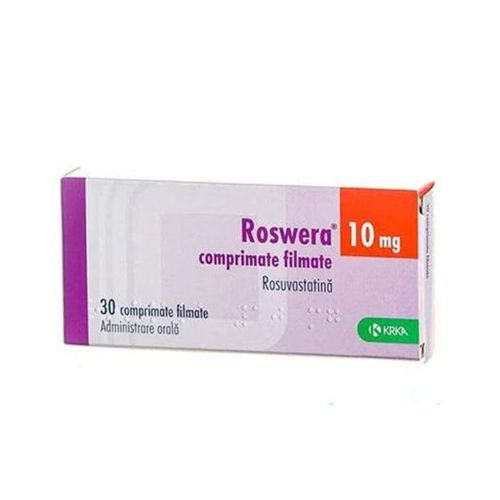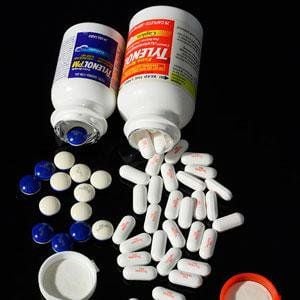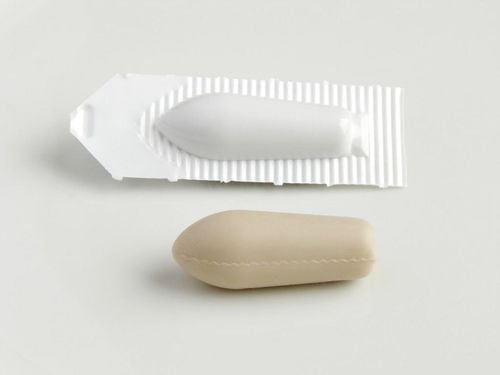1. What is Lipanthyl Supra 160mg?
Lipanthyl Supra 160mg contains Fenofibrate at a concentration of 160mg. Fenofibrate is a derivative of fibric acid that modifies blood lipid levels by activating peroxisome proliferator-activated receptor alpha (PPARα). This mechanism, Fenofibrate enhances the breakdown and removal of triglyceride-rich particles from the bloodstream. Fenofibrate increases HDL (good cholesterol) and reduces LDL (bad cholesterol). Additionally, Fenofibrate offers other effects such as reducing tendon or xanthoma deposits, increasing uric acid excretion through urine, and acting as an anti-platelet agent.
Indications for Lipanthyl Supra 160mg:
- Treatment of hypercholesterolemia or hypertriglyceridemia in patients who do not respond adequately to dietary restrictions or other non-pharmacological methods (e.g., weight loss, increased physical activity), particularly in the presence of additional health risks.
- Treatment of secondary hyperlipoproteinemia, if persistent abnormalities in blood lipoprotein levels remain despite addressing the underlying cause (e.g., dyslipidemia in diabetic patients).
Contraindications for Lipanthyl Supra 160mg:
- Children.
- Pregnant or breastfeeding women.
- Patients with liver dysfunction (e.g., abnormal liver function, biliary cirrhosis).
- Patients with severe renal impairment (creatinine clearance below 20ml/min).
- Individuals allergic to Fenofibrate or excipients in the medication.
- Those with a history of photosensitivity or phototoxic reactions while using Fenofibrate or Ketoprofen.
- Patients with acute or chronic pancreatitis (except pancreatitis caused by severe hyperlipidemia), or gallbladder disease.
- People allergic to peanuts, peanut oil, soy lecithin, or other soy-derived products.
2. Usage and dosage of Lipanthyl Supra 160mg
Usage: Administered orally.Patients should take Lipanthyl Supra 160mg after meals.
Dosage: Recommended dose: 1 tablet per day.
Overdose: There are currently no reports of Lipanthyl Supra 160mg overdose, and no specific antidote exists. If overdose is suspected, the patient should be hospitalized immediately for symptomatic and supportive treatment.
Missed dose: If a dose is missed, the patient should take it as soon as possible. However, if it is close to the time for the next dose, the missed dose should be skipped, and the next dose taken as scheduled.
3. Side effects of Lipanthyl Supra 160mg
Patients taking Lipanthyl Supra 160mg may experience some side effects, including:
- Common: Digestive and gastrointestinal disorders (moderate abdominal pain, nausea, vomiting, diarrhea, bloating), and a moderate increase in serum transaminase levels.
- Uncommon: Pancreatitis, increased gallstone size, urticaria, skin itching, rash, diffuse muscle pain, muscle cramps, muscle weakness, fibrosis, thromboembolic disorders (deep vein thrombosis, pulmonary embolism), headache, reduced libido, elevated serum creatinine and urea levels, and increased blood homocysteine levels.
- Rare: Hair loss, blistering or nodules on skin exposed to sunlight or UV light, photosensitivity, reduced hemoglobin, and white blood cell count.
- Very rare: Hepatitis.
- Frequency not determined: Rhabdomyolysis, interstitial lung disease.
If any side effects occur while taking Lipanthyl Supra 160mg, patients should inform their doctor for appropriate intervention and management.
4. Precautions When Using Lipanthyl Supra 160mg
Patients should take note of the following precautions before and during the use of Lipanthyl Supra 160mg:
- For secondary hypercholesterolemia cases (e.g., uncontrolled type 2 diabetes, nephrotic syndrome, hypothyroidism, obstructive liver disease under treatment, dysproteinemia, alcoholism), appropriate treatment should be initiated before using Fenofibrate.
- Monitor the patient’s response by measuring serum lipid levels (total cholesterol, LDL-cholesterol, and triglycerides). If there is no adequate response after a few months, alternative therapies should be considered.
- For patients with hyperlipidemia using estrogen or estrogen-containing contraceptives, determine whether hyperlipidemia is primary or secondary (possibly caused by estrogen).
- Transaminase elevations have been observed in some liver conditions. Most cases are mild, transient, and asymptomatic. Periodic monitoring of transaminase levels is recommended every 3 months during the first 12 months of treatment, then periodically thereafter. Discontinue treatment if ALT or AST levels exceed 3 times the upper normal limit.
- Pancreatitis has been reported with Fenofibrate use, possibly due to treatment failure in patients with severe hypertriglyceridemia or secondary causes such as gallstones or bile duct deposits.
- Muscle toxicity (including rhabdomyolysis) has been reported with Fenofibrate and other lipid-lowering agents. The risk increases in patients with hypoalbuminemia or pre-existing renal impairment. Use Fenofibrate cautiously in individuals over 70 years of age, those with a personal or family history of muscular disorders, hypothyroidism, renal impairment, or excessive alcohol consumption. Symptoms of muscle toxicity include diffuse muscle pain, muscle inflammation with cramps in the affected area, weakness, or elevated CPK levels (over 5 times normal). If these occur, discontinue Fenofibrate immediately.
- Increased muscle toxicity risk when Fenofibrate is combined with other fibrates or HMG-CoA reductase inhibitors (especially in patients with a history of muscle disease). Use caution when prescribing Fenofibrate with these medications for patients without a history of muscle disease but with severe hyperlipidemia and a high cardiovascular risk. Close monitoring for muscle toxicity is advised.
- Elderly patients may use Fenofibrate at the same dose as adults.
- Lipanthyl Supra 160mg contains lactose and should not be used by individuals with lactase deficiency, galactose intolerance, or glucose-galactose malabsorption.
- Discontinue Fenofibrate if creatinine levels increase by more than 50% above the upper limit of normal. Creatinine should be measured within the first 3 months of treatment.
- There is insufficient data on Fenofibrate use during pregnancy. It should only be used during pregnancy if the benefits outweigh the risks.
There is no data on whether Fenofibrate is excreted in breast milk. Therefore, it should not be used during breastfeeding.
5. Drug interactions Lipanthyl Supra 160mg
Several drug interactions involving Lipanthyl Supra 160mg include:
- The combination of Fenofibrate (the active ingredient in Lipanthyl Supra 160mg) with oral anticoagulants is not recommended. Fenofibrate enhances the effect of anticoagulants, increasing the risk of bleeding. If such a combination is necessary, the anticoagulant dose should be reduced by one-third at the start of treatment and gradually adjusted based on the international normalized ratio (INR) as required.
- Some cases of reversible renal function impairment have been reported with the simultaneous use of Fenofibrate and cyclosporin. Renal function should be closely monitored, and Fenofibrate should be discontinued if significant changes in test results occur.
- The risk of muscle toxicity increases when Fenofibrate is used with HMG-CoA reductase inhibitors or other fibrates. Caution is advised with such combinations, and patients should be closely monitored for signs of muscle toxicity.
- At therapeutic doses, Fenofibrate weakly inhibits CYP2C19 and CYP2A6, and moderately inhibits CYP2C9. Patients using drugs metabolized by these enzymes concurrently with Fenofibrate should be closely monitored. Dose adjustments of these drugs may be necessary.
Patients should strictly follow the doctor’s instructions while being treated with Lipanthyl Supra 160mg. If any unusual side effects occur, patients should immediately report them to their doctor for appropriate advice and intervention.
Follow the Vinmec International General Hospital website for more information on health, nutrition, and beauty to protect the health of yourself and your loved ones.
To arrange an appointment, please call HOTLINE or make your reservation directly HERE. You may also download the MyVinmec app to schedule appointments faster and manage your reservations more conveniently.













